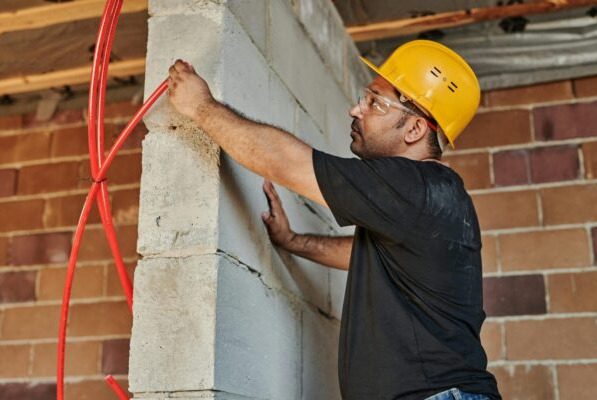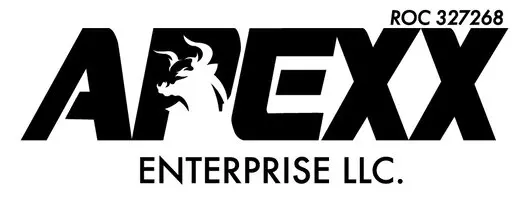What to Look for in a Concrete Contractor: Key Considerations
Call us at (520) 301-0316

Hiring the right contractor for any concrete project is crucial, whether it’s a foundation, driveway, patio, or major construction project. To ensure high-quality, long-lasting concrete work, precision, skills, and the correct tools are required. How do you choose a contractor when there are so many? This blog will help you make the best decision.
Experience and Expertise
The most important factor in ensuring the success of your project is to choose a contractor who has the appropriate level of experience. Concrete is very forgiving, but once it has been poured you cannot easily correct mistakes. Experience is essential.
Why Experience Is Crucial for Concrete Projects
Contractors with experience bring valuable knowledge into every phase of a project. They know the best techniques to use for various types of concrete, how to deal with potential problems, and how to achieve durability and longevity. An experienced contractor, for example, will be able to determine how the weather can affect concrete pouring. They will then take measures to prevent cracks or premature wear.
A contractor with experience is often more efficient. It can save both time and money as the contractor is likely to have fewer problems along the way.
How to Verify a Contractor’s Expertise
Ask the contractor how long they’ve been in business, and what type of projects they specialize in. A reputable concrete contractor should be able to provide past examples of work that’s similar to yours. Contractors with a variety of experience and at least a few years in the business are a good choice.
Proper Licensing and Insurance
Licensing and insurance are two things that you should not compromise on when choosing a concrete contractor. Both you and the concrete contractor are protected by these two factors in case of an accident or mistake.
Why Licensing Matters in Construction Work
This means that a licensed contractor is allowed to legally work in your region and has met industry standards. It ensures they adhere to local building codes and regulations which is vital for safety and legality. If you don’t have a license, your work could be substandard, or, worse yet, you may face legal issues in the future. Verify that the contractor has all necessary licenses.
Understanding the Importance of Contractor Insurance
Insurance is as important as licensing. Concrete work is not without risk, such as property damage or injury. Liability insurance from a contractor will cover these risks and ensure that you are not responsible for any mishaps. Workers’ compensation insurance will protect you in the event that a worker is injured on your premises. Before signing any contract, always ask for proof of insurance.
Portfolio of Completed Projects
It is important to look at past work in order to determine a contractor’s capabilities. You can be confident that a contractor will handle your needs if they have a strong portfolio.
Reviewing Past Work for Quality and Style
Focus on the quality of work when reviewing the portfolio of a contractor. Are the surfaces of concrete smooth, flat, and without cracks? Is the project well-built and durable? Also, search for similar projects in terms of size and scope. You can then determine if the contractor is capable of delivering the results that you want.
What to Look for in Similar Project Experience
You should find a contractor that has done similar projects to yours. If you want a new drive, for example, check out their portfolio. Find examples of work done for commercial projects if you are working on one. It will ensure that the contractor understands the specifics of your project and the challenges it may face.
Client Testimonials & Reviews
Customer feedback is a powerful indicator of a contractor’s reliability. Reviews from past clients are a great way to get a feel for what you should be looking for in a contractor.
How to Assess Client Feedback Online
Start by reading online reviews. You can find reviews on Google, Yelp, or the contractor’s website. Be sure to pay attention to the way clients describe their experience, how they communicate, and if the project was completed within budget and on time. Positive reviews that are consistent with each other can be a sign of a contractor’s reliability and quality.
Red Flags to Watch for in Contractor Reviews
When reading reviews, look for red flags, such as complaints of poor communication, delays, or unexpected costs. Multiple reviews that mention the same issues could indicate that the contractor may not be as reliable as he seems. Be wary of contractors with only glowing reviews, without any constructive criticism. These could be fakes or solicited.
Communication and Transparency
A successful project requires clear communication. A contractor should keep you updated at each stage of the project.
The Role of Clear Communication in Project Success
Open and honest communication is essential from the first consultation through to the project’s completion. This helps prevent misunderstandings and errors. Your contractor should provide you with a clear timeline, cost, and potential issues. Communication is key to ensuring everyone understands the process.
How to Gauge a Contractor’s Transparency
During the first consultation, you can check if a contractor is transparent. Do they disclose all costs upfront? Answer your questions completely. Contractors who are vague or refuse to discuss certain details could be untrustworthy. Transparency is key. It’s best to start with someone transparent.
Call us at (520) 301-0316

Quality of Materials and Equipment
The outcome of your project is directly impacted by the quality of tools and materials used. When deciding what to look for when choosing a concrete contractor, this is an important consideration.
Ensuring High-Quality Materials for Long-Lasting Results
The contractor should be able to tell you what materials they will use. Your project will last longer if you use high-quality reinforcing and concrete materials. Poor-quality materials may lead to crumbling and cracking.
Why Equipment Matters in Delivering Quality Work
Equipment is just as important as the materials used. Well-maintained, modern equipment allows contractors to work more efficiently and produce better results. A contractor’s use of outdated or poorly maintained tools can affect the quality and outcome of your project.
Detailed Estimates and Contracts
A detailed and clear estimate shows professionalism. This ensures both parties are aware of the scope and cost of the project.
What To Look For In A Comprehensive Estimate
If you are reviewing an estimate, be sure to include a breakdown for materials, labor, and any other costs such as permits or cleaning. Uncertainty in an estimate can result in unexpected costs. A detailed estimate shows that the contractor carefully considered every aspect of the job.
Understanding the Fine Print in Contracts
Read the contract carefully before signing. Check for clauses covering the payment schedule and timeline. Also, look out for what happens in case of issues. A good contract will protect both you and your contractor. It will also ensure that expectations are clearly communicated from the beginning.
Timelines and Project Management
Delays can be expensive. It’s important to select a contractor that respects deadlines.
Why Adhering to Project Deadlines Is Critical
Consistently meeting deadlines demonstrates that a contractor is organized and reliable. Delays may cause inconveniences and increase costs, particularly if the concrete work is dependent on other aspects of your project. Select a contractor who has a track record of completing their projects on time.
How to Ensure Proper Time Management in Concrete Work
During your initial consultations, discuss the timeline. A good contractor should provide a schedule that includes start and finish dates. Contractors who cannot commit to a specific date or seem overly optimistic that the work will be completed quickly could indicate poor planning.
Warranty and Post-Project Support
The contractor should offer warranties and support after the project.
What Should Be Included in a Contractor’s Warranty
A good warranty should cover both materials and workmanship. Clarify what is covered by the warranty and for how long. If something goes wrong, the contractor can fix it without you having to pay any additional fees.
The Importance of Post-Project Follow-Up
Support after the project is essential. After the project is completed, a contractor who follows up with their customers shows they care about their satisfaction. They should be willing and able to return if any problems arise.
Balancing Price and Quality
Although everyone wants to cut costs, it’s not always best to choose the lowest-priced contractor.
Why the Cheapest Option Isn’t Always the Best
While low bids can be attractive, they are often accompanied by compromises on quality. Contractors who offer a lower price may be cutting corners with materials or labor. Poor quality work can result in higher repair costs.
Finding Value in Competitive Pricing Without Sacrificing Quality
Look for a contractor that offers a good balance between price and quality. The best value is achieved by combining a competitive price with high-quality workmanship. It’s always better to spend money on quality work upfront than paying for repairs down the road.
It doesn’t need to be stressful when choosing the concrete contractor that will work on your project. You can find a contractor that delivers quality results by considering their experience, licensing, and client reviews. We at Apexx Enterprise LLC are proud of our professionalism, experience, and commitment to providing top-notch concrete service. Call us to discuss your project. We will provide you with a detailed quote.
